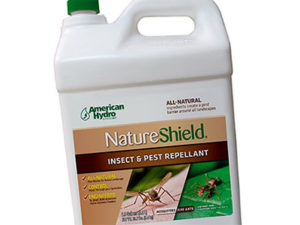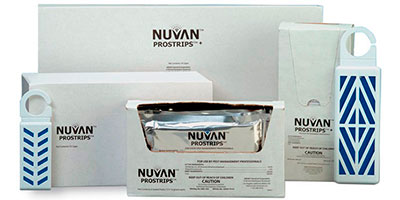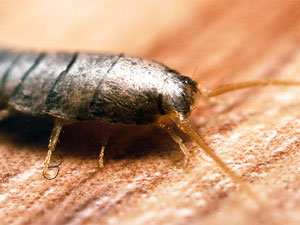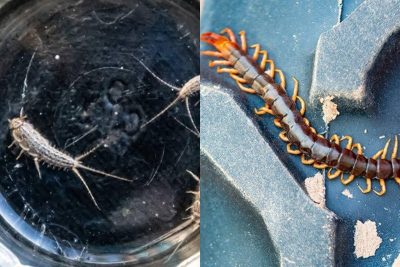Silverfish infestations can be a persistent problem in many homes. These fast-moving, nocturnal insects not only create an unsettling presence but can also cause significant damage to books, papers, clothing, and other valuable items. Finding the right silverfish killer products is essential for effective elimination. This comprehensive guide examines the most effective options available today, with science-backed recommendations to help you choose the best solution for your specific situation.
Quick Picks: Best Silverfish Killer Products of May 2025
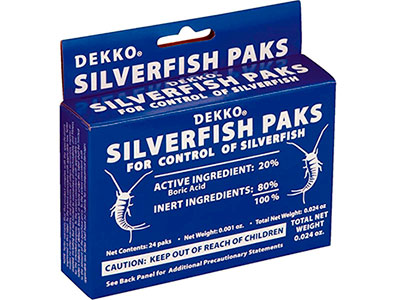
Editor’s Choice
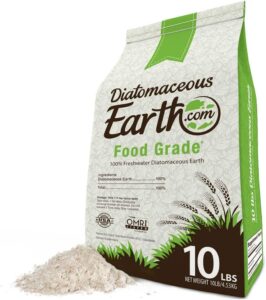
Best Natural Option
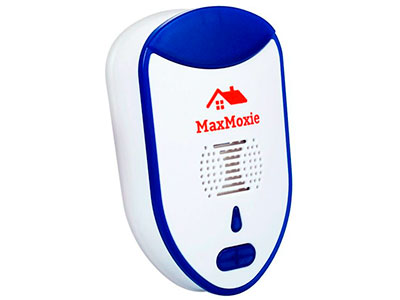
People’s Choice
- Understanding Silverfish: Why They’re a Problem
- Top 5 Best Silverfish Killer Products in 2025
- How to Choose the Right Silverfish Killer
- Comparing Effectiveness: Boric Acid vs. Diatomaceous Earth
- Silverfish Control Product Safety Guidelines
- Prevention Strategies to Complement Chemical Control
- Frequently Asked Questions
- Conclusion
Understanding Silverfish: Why They’re a Problem
Silverfish (Lepisma saccharina) are primitive, wingless insects that have existed for over 400 million years. Their scientific name provides insight into their diet preferences, as “saccharina” refers to their fondness for carbohydrates, particularly sugars and starches. These nocturnal pests can cause significant damage to your belongings and create unsanitary conditions in your home.
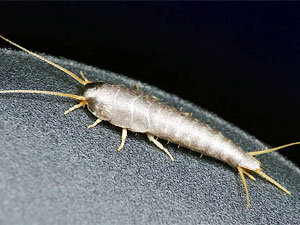
Appearance
Silverfish have carrot-shaped bodies covered in silvery-gray scales with a metallic sheen. They typically measure 1/2 to 3/4 inches long, have two long antennae, and three tail-like appendages extending from their rear.
Habitat
These insects thrive in areas with high humidity (75-95%) and moderate temperatures (70-80°F). Common hiding spots include bathrooms, basements, attics, kitchens, and cluttered storage areas.
Damage Potential
Silverfish feed on items containing starch, cellulose, and protein, including books, photographs, wallpaper, clothing, dried goods, and even glue. Their feeding habits can cause irreversible damage to valuable belongings.
Although silverfish don’t bite humans or transmit diseases, they reproduce rapidly with females laying up to 100 eggs in their lifetime. A small problem can quickly escalate into a full-blown infestation if left untreated.
Top 5 Best Silverfish Killer Products in 2025
After extensive research and evaluation of effectiveness, safety, and user satisfaction, we’ve identified the top five silverfish killer products currently available on the market. Each product has unique properties and advantages for different situations.
Dekko Silverfish Paks
Our Top PickHow Does It Work
How to Use
- Place paks in areas where silverfish activity has been observed
- Position behind bookshelves, under cabinets, and near baseboards
- Use one pak for every 100 square feet of space
- For enclosed areas like cabinets, use 1-2 paks per location
- Replace every 3-4 months for continuous protection
- Long-lasting residual effect up to 4 months
- Ready to use with no mixing or equipment needed
- Effective against multiple life stages of silverfish
- Lower risk than liquid or powder insecticides
- No messy residue or strong odors
- Not an instant solution; takes 1-2 weeks for full effect
- Contains boric acid which should be kept away from children and pets
- May require multiple applications for severe infestations
- Not effective in areas with extremely high moisture
- Must be replaced periodically for continuous control
Food Grade Diatomaceous Earth
Best Natural SolutionHow Does It Work
How to Use
- Sprinkle a thin layer in areas where silverfish travel
- Focus on baseboards, corners, and cracks
- Use a duster applicator for precise placement
- Keep the powder dry for effectiveness
- Reapply after cleaning or if powder becomes wet
- Natural and non-toxic to humans and pets
- Effective against multiple household pests
- Long-lasting when kept dry
- No chemical residues or pest resistance
- Environmentally friendly option
- Becomes ineffective when wet
- Visible on dark surfaces
- May require multiple applications
- Can cause mild respiratory irritation during application
- Less effective in high-humidity environments
Always use food-grade diatomaceous earth for indoor pest control, not the pool-grade variety which contains crystalline silica that can be harmful when inhaled. Wear a dust mask during application to avoid respiratory irritation.
Ultrasonic Pest Repeller
People's ChoiceHow Does It Work
How to Use
- Simply plug into a standard electrical outlet
- Place approximately 2-4 feet above floor level
- Ensure no furniture or curtains block sound waves
- Install one unit for every 1,000-1,600 square feet
- Allow 1-2 weeks for full effectiveness
- 100% chemical-free solution
- Safe for use around children and pets
- No maintenance or refills required
- Effective against multiple pest types
- Silent operation to human ears
- Effectiveness varies based on home construction
- Sound waves don't penetrate walls
- May take longer to see results than chemical options
- Some pets may be sensitive to the frequencies
- Requires continuous electrical connection
Ultrasonic pest repellers have gained popularity as a chemical-free alternative for silverfish control. These devices emit high-frequency sound waves that are imperceptible to humans but create an uncomfortable environment for pests, including silverfish.
Ultrasonic repellers are especially valued by households with children, pets, or those with sensitivities to chemical treatments, as they provide a non-toxic approach to pest management.
How Ultrasonic Repellers Work
These devices create sound waves at frequencies between 25-65 kHz, which disrupt the nervous systems of silverfish and other pests, making the area uninhabitable for them. The constant ultrasonic pulses create an environment that silverfish find intolerable, compelling them to leave the treated area.
Optimal Placement for Maximum Effectiveness
For best results with ultrasonic repellers:
- Install one unit for every 1,000-1,600 square feet of space
- Position devices approximately 2-4 feet above the floor
- Avoid placing behind furniture, curtains, or other obstacles that block sound waves
- Use multiple units for larger homes or severe infestations
- Place units in rooms where silverfish activity has been observed
Natural Essential Oil Spray
Best Eco-Friendly SprayHow Does It Work
How to Use
- Shake well before each application
- Dilute as directed on the packaging
- Spray around baseboards, cracks, and crevices
- Focus on dark corners and areas with previous silverfish activity
- Reapply every 5-7 days for continuous protection
- All-natural, plant-based ingredients
- Pleasant aroma unlike chemical insecticides
- Safe for use around children and pets
- No harsh chemicals or toxins
- Effective against multiple pest types
- Requires frequent reapplication
- Primarily repels rather than kills existing silverfish
- Strong scent may be overwhelming in enclosed spaces
- May stain some fabrics or surfaces
- Results may vary based on infestation severity
While essential oil sprays can be effective repellents, they typically don’t kill existing silverfish. They work best as part of a comprehensive approach that includes other elimination methods for active infestations.
Nuvan ProStrips
Best for Enclosed SpacesHow Does It Work
How to Use
- Remove from packaging and hang in enclosed areas
- Use one strip for every 100-200 cubic feet
- Place in areas inaccessible to children and pets
- Do not use in food preparation areas or occupied rooms
- Replace every 4 months for continuous protection
- Highly effective against silverfish and other pests
- Long-lasting protection for up to 4 months
- No spraying or dusting required
- Reaches into cracks and crevices
- Odorless operation
- Only for use in enclosed, unoccupied spaces
- Must be kept away from children and pets
- Not suitable for rooms where people spend time
- Contains pesticides requiring careful handling
- Not a natural or eco-friendly option
For severe silverfish infestations that don’t respond to other methods, professional-grade insecticides containing bifenthrin can offer a powerful solution. Bifenthrin is a synthetic pyrethroid that attacks the nervous system of insects, providing both immediate kill action and residual control.
How Bifenthrin Works Against Silverfish
Bifenthrin works through contact and ingestion, disrupting the silverfish’s nervous system and leading to paralysis and death. The residual effect can last up to 90 days indoors, providing ongoing protection against reinfestation.
While effective, bifenthrin-based products should be used with caution. Always follow label instructions carefully, wear appropriate protective equipment during application, and keep treated areas off-limits to children and pets until completely dry.
How to Choose the Right Silverfish Killer
Selecting the most appropriate silverfish killer depends on several key factors, including the severity of your infestation, your household composition, and your personal preferences regarding chemical usage.
- Assess Infestation Severity
For mild infestations with occasional sightings, natural options like diatomaceous earth or essential oil sprays may be sufficient. Moderate to severe infestations typically require more powerful interventions such as boric acid-based products (Dekko Paks) or professional-grade insecticides. - Consider Household Members
Homes with young children, pets, or individuals with respiratory sensitivities may need to prioritize safer options like ultrasonic repellers or carefully applied diatomaceous earth. Always place boric acid products where children and pets cannot access them. - Evaluate Application Areas
Different products work best in specific environments. For example, diatomaceous earth works well in dry areas but loses effectiveness in high humidity. Liquid concentrates may be preferred for perimeter treatments, while bait paks work well in enclosed spaces like cabinets and bookshelves. - Consider Environmental Impact
If environmental concerns are a priority, opt for natural products like diatomaceous earth or essential oil sprays. These options break down naturally without leaving harmful residues. - Balance Effectiveness with Safety
The most powerful products often come with increased safety considerations. Finding the right balance between effectiveness and safety is key to successful silverfish management.
Comparing Effectiveness: Boric Acid vs. Diatomaceous Earth
Boric acid and diatomaceous earth are two of the most popular DIY options for silverfish control, but they work through different mechanisms and have different strengths and limitations.
| Feature | Boric Acid (Dekko Paks) | Diatomaceous Earth |
|---|---|---|
| Mode of Action | Acts as a stomach poison when ingested by silverfish, disrupting their metabolism and digestive system | Works mechanically by cutting through the silverfish’s exoskeleton, causing dehydration |
| Effectiveness Speed | Moderate; typically takes 2-7 days for full effect | Variable; can work within 24-72 hours upon direct contact |
| Residual Activity | Up to 4 months when kept dry | Indefinite as long as it remains dry and undisturbed |
| Effectiveness in Humid Areas | Maintains effectiveness in moderately humid environments | Significantly reduced effectiveness when wet or in high humidity |
| Safety Profile | Low toxicity but should be kept away from children and pets | Non-toxic when food-grade; generally safe around children and pets |
| Best Use Cases | Enclosed spaces, severe infestations, areas with moderate humidity | Dry areas, mild to moderate infestations, homes with pets/children |
A pest control expert from Truly Nolen stated that “Both materials will be effective long-term, provided that they are not disturbed,” adding that if either becomes compromised by water or other factors, they cease to work effectively.
For severe infestations, experts often recommend using both boric acid and diatomaceous earth in different areas of the home, taking advantage of their complementary properties to maximize effectiveness.
Silverfish Control Product Safety Guidelines
Safety should always be a top priority when dealing with any pest control products. Even natural solutions require proper handling to ensure they don’t create unintended risks to household members.
- Read Label Instructions Carefully
All pest control products come with specific application instructions that should be followed precisely. These guidelines are designed to maximize effectiveness while minimizing risks. - Use Protective Equipment
When applying powders or liquid insecticides, wear appropriate protective gear such as gloves, a mask, and eye protection to prevent irritation or accidental exposure. - Keep Products Away from Children and Pets
Store all silverfish control products in their original containers, out of reach of children and pets. Apply baits and treatments in areas inaccessible to non-target organisms. - Avoid Food Contamination
Never apply insecticides directly to food preparation surfaces, dishes, or utensils. If treating kitchen areas, ensure all food items are properly stored and protected. - Ensure Proper Ventilation
When using spray or aerosol products, ensure adequate ventilation during and after application. Consider temporarily vacating treated areas until sprays have dried completely.
Professional-grade pesticides should be used only as a last resort when other methods have failed. If you choose to use these products, strictly follow all safety precautions listed on the label and consider consulting with a professional pest control service.
Prevention Strategies to Complement Chemical Control
The most effective silverfish management programs combine targeted treatments with preventive measures to create an environment that’s inhospitable to these pests. Mississippi State University Extension emphasizes that “Good moisture management, sanitation, and exclusion are the first steps to controlling silverfish.”
Humidity Control
Silverfish thrive in humid environments. Use dehumidifiers to maintain indoor humidity below 50%, fix leaky pipes promptly, and ensure bathrooms and basements are well-ventilated.
Regular Cleaning
Vacuum frequently to remove food particles and potential silverfish eggs. Pay special attention to cracks, baseboards, and behind furniture where silverfish hide.
Proper Storage
Store books, papers, clothing, and dried foods in sealed plastic containers. This denies silverfish access to both food and shelter.
Implementing these preventive measures not only reduces the likelihood of future infestations but also enhances the effectiveness of any chemical treatments by eliminating conditions that favor silverfish survival.
Simple DIY Silverfish Traps
Homemade traps can be an effective way to monitor silverfish activity and reduce populations. Dr. Changlu Wang from Rutgers University’s Department of Entomology recommends “pitfall-style traps, such as tape-wrapped glass jars” for catching silverfish. Here are two easy-to-make options:
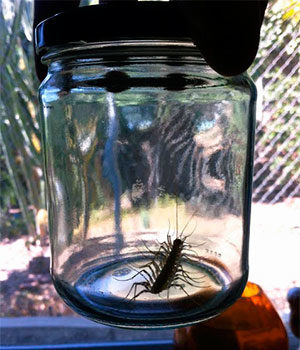
- Take a glass jar with smooth interior walls
- Wrap the outside with masking tape (rough texture)
- Place a small piece of bread or starch inside
- Silverfish climb in but can’t climb out
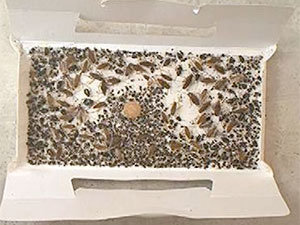
- Apply double-sided tape to index cards
- Place a small amount of flour or starch in center
- Position in corners and along baseboards
- Silverfish stick to tape when approaching bait
Frequently Asked Questions
How quickly do silverfish killer products work?
The time frame varies by product type. Contact insecticides can kill silverfish immediately upon direct exposure, while baits like Dekko Paks typically take 2-7 days. Diatomaceous earth works within 24-72 hours after contact, and ultrasonic repellers may take 1-2 weeks to drive silverfish away. For severe infestations, expect to see significant improvement within 2-4 weeks of consistent treatment.
Are silverfish killers safe to use around food?
Most commercial silverfish killers should not be applied directly to food preparation surfaces or stored food. Boric acid products like Dekko Paks should be placed away from food areas. Diatomaceous earth is generally considered food-safe (when food-grade), but should still be kept away from direct food contact. Always read product labels for specific safety guidelines regarding food areas.
What’s the difference between silverfish and firebrats?
Silverfish and firebrats are closely related insects with similar appearance and habits. The main differences are their preferred habitats and coloration. Silverfish are silvery-gray and prefer cool, moist environments (50-80°F), while firebrats are mottled brown/gray and thrive in hot, dry areas near heat sources (80-100°F). The control methods described in this article are effective against both pests.
Do I need to treat my entire house for silverfish?
Not necessarily. Target treatments to areas where silverfish activity has been observed and high-risk locations with favorable conditions (high humidity, papers/books, stored fabrics). Bathrooms, basements, attics, kitchens, and libraries/offices with books are common hotspots. Creating a perimeter treatment around these areas can prevent spreading to other parts of the home.
When should I call a professional exterminator?
Consider professional pest control if: (1) your DIY efforts haven’t produced results after 3-4 weeks, (2) you have a severe infestation affecting multiple rooms, (3) you’ve identified structural issues contributing to the infestation, or (4) you’re concerned about safely applying treatments in homes with vulnerable individuals. Professionals have access to more powerful products and specialized equipment.
Conclusion
Silverfish control requires a strategic approach that combines effective elimination products with preventive measures. By selecting the right silverfish killer for your specific situation and implementing complementary prevention strategies, you can successfully rid your home of these prehistoric pests and protect your valuable belongings from damage.
Remember that persistence is key—silverfish have survived for hundreds of millions of years by being highly adaptable. A comprehensive approach using multiple methods will yield the best results, particularly for established infestations.
For most households, we recommend starting with the Dekko Silverfish Paks for targeted control in infested areas, combined with diatomaceous earth for perimeter treatment and comprehensive humidity management throughout the home.
By following the guidance in this article and consistently applying these proven solutions, you can create a silverfish-free environment and protect your home from future infestations.
